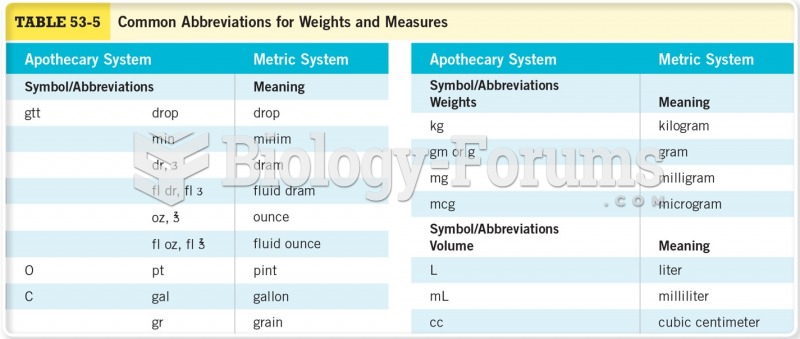|
|
|
Human kidneys will clean about 1 million gallons of blood in an average lifetime.
Cutaneous mucormycosis is a rare fungal infection that has been fatal in at least 29% of cases, and in as many as 83% of cases, depending on the patient's health prior to infection. It has occurred often after natural disasters such as tornados, and early treatment is essential.
During the twentieth century, a variant of the metric system was used in Russia and France in which the base unit of mass was the tonne. Instead of kilograms, this system used millitonnes (mt).
In the United States, an estimated 50 million unnecessary antibiotics are prescribed for viral respiratory infections.
Blood in the urine can be a sign of a kidney stone, glomerulonephritis, or other kidney problems.







